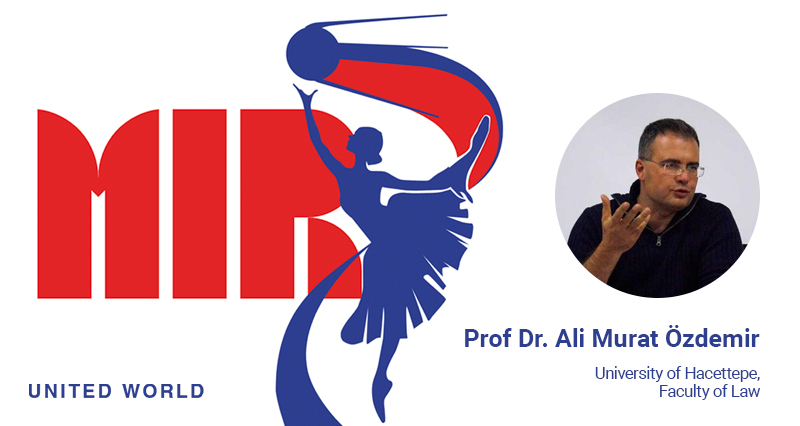On the 26th and 27th of February, the Russian Federation hosted over 500 participants from more than 130 countries in Moscow to challenge Western hegemony in the Second Congress of the International Russophile Movement (MIR).
UWI documents in the following days some speeches delivered in the congress. Today we publish the presentation of Ali Murat Özdemir, professor at the Faculty of Law in the University of Hacettepe (Ankara).
Some discussion topics that can transform the rising anti-imperialist sentiments of the peoples of the world into concrete policy proposals
By Prof. Dr. Ali Murat Özdemir, University of Hacettepe (Ankara), Faculty of Law
Today, we see an increase in anti-imperialism in the world. The anti-imperialist struggle of the Russian Federation, the non-imperialist development of China and the decline in the capacity of neoliberalism as a mode of regulation to postpone the contradictions of the collective imperialist bloc are among the causes of the rising anti-imperialist wave. However, despite the growing anti-imperialism, we do not observe an increase in the areas of discussion that can transform the anti-imperialism of the peoples of the world into concrete policy proposals. This short speech proposes discussion topics that can transform the recent anti-imperialist current into concrete policy proposals.
The first of these is what we can call debt imperialism. Today, despite increasing global indebtedness (leaving aside the failed formation in Latin America in the 1970s), there is no global organization of debtors. However, in a world where the dollar is not indexed to gold, it can be said that lenders lend without producing value yet on the other hand borrowers have to repay their debts by producing value. What I mean is this: If lenders were to use the money they lend to borrowers in domestic markets instead of transferring it to them, what they would face would be high inflation. When we add to 1971, the year the gold standard was abolished, the process of financialization – as it emerged after the 1990s – and add the recently invented task of “defending interests outside the national sphere” assigned to central banks and other government institutions, the situation we face becomes dire. At this point, there is not a contractual economic relationship between equals, but a system of blatant abuse and exploitation. Therefore, since creditors have organizations while debtors do not, the issue of “establishing a worldwide organization of debtor states” should be discussed. The discussion could also include the return to the “Gold Standard” and the prohibition of “mechanisms that grant a particular state the right of seigniorage at the international level”.
Secondly, one could investigate how intellectual property rights exacerbate development problems in developing countries. In this context, it should not be forgotten that the central capitalist world had developed by plundering what belongs to the rest of the world for free, and therefore the issue of intellectual property rights should be rethought in a more egalitarian manner in this context.
Thirdly, new proposals on the existing international migration and asylum regulations and practices can be brought forward. It should not be forgotten that the promise (the utopia) that liberalism, and thus the current wave of imperialist globalization, makes to legitimize itself is the free movement of the elements of production. While money and similar instruments, raw materials, ideas and services, which constitute the elements of production, circulate freely, the confinement of labor, the most basic element of production, to the borders of “under developing states” – let alone us – constitutes a contradiction in terms of neoliberal discourse. In many cases, the centers/cities where refugees want to arrive are the capitals of the countries that make up the collective imperialist bloc. In fact, the countries of these people have become uninhabitable due to collective imperialist expansion. Therefore, the last topic of discussion that we can propose in this short talk should be titled “the obstacles erected by the collective imperialist countries in the process of international movement of labor”.
Thank you for listening.

















Leave a Reply